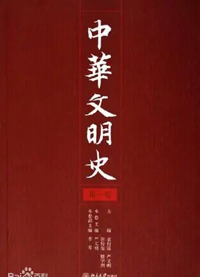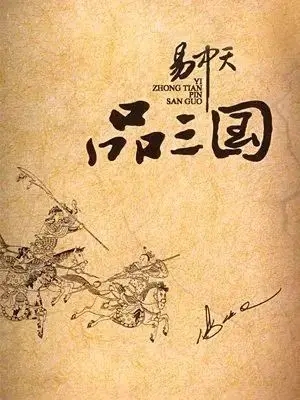Marius kept his promise. He dropped a kiss on that livid brow, where the icy perspiration stood in beads.
This was no infidelity to Cosette; it was a gentle and pensive farewell to an unhappy soul.
It was not without a tremor that he had taken the letter which Eponine had given him. He had immediately felt that it was an event of weight. He was impatient to read it. The heart of man is so constituted that the unhappy child had hardly closed her eyes when Marius began to think of unfolding this paper.
He laid her gently on the ground, and went away. Something told him that he could not peruse that letter in the presence of that body.
He drew near to a candle in the tap-room. It was a small note, folded and sealed with a woman's elegant care. The address was in a woman's hand and ran:--
"To Monsieur, Monsieur Marius Pontmercy, at M. Courfeyrac's, Rue de la Verrerie, No. 16."
He broke the seal and read:--
"My dearest, alas! my father insists on our setting out immediately. We shall be this evening in the Rue de l'Homme Arme, No. 7. In a week we shall be in England. COSETTE. June 4th."
Such was the innocence of their love that Marius was not even acquainted with Cosette's handwriting.
What had taken place may be related in a few words. Eponine had been the cause of everything. After the evening of the 3d of June she had cherished a double idea, to defeat the projects of her father and the ruffians on the house of the Rue Plumet, and to separate Marius and Cosette. She had exchanged rags with the first young scamp she came across who had thought it amusing to dress like a woman, while Eponine disguised herself like a man. It was she who had conveyed to Jean Valjean in the Champ de Mars the expressive warning: "Leave your house." Jean Valjean had, in fact, returned home, and had said to Cosette: "We set out this evening and we go to the Rue de l'Homme Arme with Toussaint. Next week, we shall be in London." Cosette, utterly overwhelmed by this unexpected blow, had hastily penned a couple of lines to Marius. But how was she to get the letter to the post? She never went out alone, and Toussaint, surprised at such a commission, would certainly show the letter to M. Fauchelevent. In this dilemma, Cosette had caught sight through the fence of Eponine in man's clothes, who now prowled incessantly around the garden. Cosette had called to "this young workman" and had handed him five francs and the letter, saying: "Carry this letter immediately to its address." Eponine had put the letter in her pocket. The next day, on the 5th of June, she went to Courfeyrac's quarters to inquire for Marius, not for the purpose of delivering the letter, but,--a thing which every jealous and loving soul will comprehend,--"to see." There she had waited for Marius, or at least for Courfeyrac, still for the purpose of seeing. When Courfeyrac had told her: "We are going to the barricades," an idea flashed through her mind, to fling herself into that death, as she would have done into any other, and to thrust Marius into it also. She had followed Courfeyrac, had made sure of the locality where the barricade was in process of construction; and, quite certain, since Marius had received no warning, and since she had intercepted the letter, that he would go at dusk to his trysting place for every evening, she had betaken herself to the Rue Plumet, had there awaited Marius, and had sent him, in the name of his friends, the appeal which would, she thought, lead him to the barricade. She reckoned on Marius' despair when he should fail to find Cosette; she was not mistaken. She had returned to the Rue de la Chanvrerie herself. What she did there the reader has just seen. She died with the tragic joy of jealous hearts who drag the beloved being into their own death, and who say: "No one shall have him!"
Marius covered Cosette's letter with kisses. So she loved him! For one moment the idea occurred to him that he ought not to die now. Then he said to himself: "She is going away. Her father is taking her to England, and my grandfather refuses his consent to the marriage. Nothing is changed in our fates." Dreamers like Marius are subject to supreme attacks of dejection, and desperate resolves are the result. The fatigue of living is insupportable; death is sooner over with. Then he reflected that he had still two duties to fulfil: to inform Cosette of his death and send her a final farewell, and to save from the impending catastrophe which was in preparation, that poor child, Eponine's brother and Thenardier's son.
He had a pocket-book about him; the same one which had contained the note-book in which he had inscribed so many thoughts of love for Cosette. He tore out a leaf and wrote on it a few lines in pencil:--
"Our marriage was impossible. I asked my grandfather, he refused; I have no fortune, neither hast thou. I hastened to thee, thou wert no longer there. Thou knowest the promise that I gave thee, I shall keep it. I die. I love thee. When thou readest this, my soul will be near thee, and thou wilt smile."
Having nothing wherewith to seal this letter, he contented himself with folding the paper in four, and added the address:--
"To Mademoiselle Cosette Fauchelevent, at M. Fauchelevent's, Rue de l'Homme Arme, No. 7."
Having folded the letter, he stood in thought for a moment, drew out his pocket-book again, opened it, and wrote, with the same pencil, these four lines on the first page:--
"My name is Marius Pontmercy. Carry my body to my grandfather, M. Gillenormand, Rue des Filles-du-Calvaire, No. 6, in the Marais."
He put his pocketbook back in his pocket, then he called Gavroche.
The gamin, at the sound of Marius' voice, ran up to him with his merry and devoted air.
"Will you do something for me?"
"Anything," said Gavroche. "Good God! If it had not been for you, I should have been done for."
"Do you see this letter?"
"Yes."
"Take it. Leave the barricade instantly" (Gavroche began to scratch his ear uneasily) "and to-morrow morning, you will deliver it at its address to Mademoiselle Cosette, at M. Fauchelevent's, Rue de l'Homme Arme, No. 7."
The heroic child replied
"Well, but! In the meanwhile the barricade will be taken, and I shall not be there."
"The barricade will not be attacked until daybreak, according to all appearances, and will not be taken before to-morrow noon."
The fresh respite which the assailants were granting to the barricade had, in fact, been prolonged. It was one of those intermissions which frequently occur in nocturnal combats, which are always followed by an increase of rage.
"Well," said Gavroche, "what if I were to go and carry your letter to-morrow?"
"It will be too late. The barricade will probably be blockaded, all the streets will be guarded, and you will not be able to get out. Go at once."
Gavroche could think of no reply to this, and stood there in indecision, scratching his ear sadly.
All at once, he took the letter with one of those birdlike movements which were common with him.
"All right," said he.
And he started off at a run through Mondetour lane.
An idea had occurred to Gavroche which had brought him to a decision, but he had not mentioned it for fear that Marius might offer some objection to it.
This was the idea:--
"It is barely midnight, the Rue de l'Homme Arme is not far off; I will go and deliver the letter at once, and I shall get back in time."
马吕斯履行他的诺言。他在那冷汗涔涔的灰白额头上吻了一下。这不算对珂赛特的不忠,这是怀着无可奈何的感伤向那不幸的灵魂告别。
他拿到爱潘妮给他的信心中不能不为之震惊。他立即感到这里有重大的事。他迫不及待,急于要知道它的内容。人心就是这样,那不幸的孩子还几乎没有完全闭上眼睛,马吕斯便已想到要展读那封信。他把她轻轻放在地上,便走开了。某种东西使他无法在这尸体面前念那封信。
他走进厅堂,凑近一支蜡烛。那是一封以女性的优雅和细心折好封好的小柬,地址是女子的笔迹,写着:
玻璃厂街十六号,古费拉克先生转马吕斯·彭眉胥先生。
他拆开信封,念道:
我心爱的,真不巧,我父亲要我们立刻离开此地。今晚我们住在武人街七号。八天内我们去伦敦。珂赛特。六月四日。
他们的爱情竟会天真到如此程度,以致马吕斯连珂赛特的笔迹也不认识。
几句话便可把经过情形说清楚。一切全是爱潘妮干的。经过六月三日夜间的事以后她心里有了个双重打算:打乱她父亲和匪徒们抢劫卜吕梅街那一家的计划,并拆散马吕斯和珂赛特。她遇到想穿穿女人衣服寻开心的一个不相干的小伙子,便用她原有的破衣,换来她身上的这套服装,扮成个男子。在马尔斯广场向冉阿让扔下那意味深长的警告“快搬家”的便是她。冉阿让果然回到家里便向珂赛特说:“我们今晚要离开此地,和杜桑一同到武人街去住,下星期去伦敦。”珂赛特被这一意外的决定搞得心烦意乱,赶忙写了两行字给马吕斯。但是怎样把这封信送到邮局去呢?她从来不独自一人上街,要杜桑送去吧,杜桑也会感到奇怪,肯定要把这信送给割风先生看。正在焦急时,珂赛特一眼望见穿着男装的爱潘妮在铁栏门外闪过;爱潘妮近来经常在那园子附近逡巡的。珂赛特把这“少年工人”叫住,给了他五个法郎并对他说:“劳驾立刻把这封信送到这地方去。”爱潘妮却把信揣了在她的衣袋里。第二天,六月五日,她跑到古费拉克家里去找马吕斯,她去不是为了送信,而是为了“去看看”,这是每一个醋劲大发的情人都能理解的。她在那门口等了马吕斯,或至少,等了古费拉克,也还是为了“去看看”。当古费拉克对她说“我们去街垒”时,她脑子里忽然有了个主意。她想她横竖活不下去,不如就去死在街垒里,同时也把马吕斯推进去。她跟在古费拉克后面,确切知道了他们建造街垒的地点,并且还预料到,她既然截了那封信,马吕斯无从得到消息,傍晚时他必然要去那每天会面的地方,她到卜吕梅街去等候马吕斯,并借用他朋友们的名义向他发出那一邀请,她想,这样一定能把马吕斯引到街垒里去。她料定马吕斯见不着珂赛特必然要悲观失望,她确也没有估计错。她自己又回到了麻厂街。我们刚才见到了她在那里所做的事。她怀着宁肯自己杀其所爱、也决不让人夺其所爱,自己得不着、便谁也得不着的那种妒忌心,欢快地走上了惨死的道路。
马吕斯在珂赛特的信上不断地亲吻。这样看来,她仍是爱他的了!他一时曾想到他不该再作死的打算。接着他又对自己说:“她要走了。她父亲要带她去英国,我那外祖父也不允许我和她结婚。因此,命运一点也没有改变。”象马吕斯这样梦魂萦绕的人想到这件终生恨事,从中得出的结论仍只有死路一条。与其在受不了的苦恼中活着,倒不如死了干脆。
他随即想到还剩下两件事是他必须完成的:把他决死的心告诉珂赛特,并向她作最后的告别;另外,要把那可怜的孩子,爱潘妮的兄弟和德纳第的儿子,从这场即将来临的灾难中救出去。
他身上有个纸夹子,也就是从前夹过他在爱慕珂赛特的初期随时记录思想活动的那一叠随笔的夹子。他撕下一张纸,用铅笔写了这几行字:
我们的婚姻是不可能实现的。我已向我的外祖父提出要求,他不同意,我没有财产,你也一样。我到你家里去过,没有找着你,你知道我向你作出的誓言,我是说话算数的。我决心去死。我爱你。当你念着这封信时,我的灵魂将在你的身边,并向你微笑。
他没有信封,只好把那张纸一折四,写上地址:
武人街七号,割风先生家,珂赛特·割风小姐收。
信折好以后,他又想了一会儿,又拿起他的纸夹子,翻开第一页,用同一支铅笔,写了这几行字:
我叫马吕斯·彭眉胥。请把我的尸体送到我外祖父吉诺曼先生家,地址是:沼泽区,受难修女街六号。
他把纸夹子放进他衣服口袋里,接着就喊伽弗洛什。那野孩听到马吕斯的声音,带着欢快殷勤的面容跑来了。
“你肯替我办件事吗?”
“随您什么事,”伽弗洛什说,“好上帝的上帝!没有您的话,说真的,我早被烤熟了。”
“你看得见这封信吗?”
“看得见”。
“你拿着。马上绕出这街垒(伽弗洛什心里不踏实,开始搔他的耳朵)。明天早上你把它送到这地方,武人街七号割风先生家,交给珂赛特·割风小姐。”
那英勇的孩子回答说:
“好倒好,可是!在这段时间里街垒会让人家占了去,我却不在场。”
“看来在天亮以前不会有人再来攻打街垒,明天中午以前也决攻不下来。”
官军再次留给这街垒的喘息时间确在延长。夜战中常有这种暂时的休止,后面跟着来的却总是倍加猛烈的进攻。
“好吧,”伽弗洛什说,“我明天早晨把您的信送去,行吗?”
“那太迟了。街垒也许会被封锁,所有的通道全被掐断,你会出不去。你立刻就走吧。”
伽弗洛什找不出反驳的理由,但他还是呆立着不动,拿不定主意,愁眉苦脸地只顾搔耳朵。忽然一下,以他那常有的小雀似的急促动作抓去了那封信。
“好。”他说。
他从蒙德都巷子跑出去了。
伽弗洛什下了决心,因为他有了个主意,但是没有说出来他怕马吕斯反对。
他的主意是这样的:
“现在还不到晚上十二点,还差几分钟。武人街也不远。我立刻把这信送去,还来得及赶回来。”







